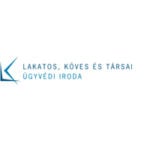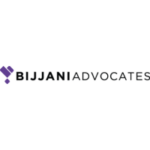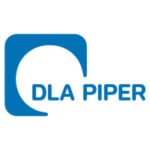-
What are the typical ownership structures for project companies in your jurisdiction? Does this vary based on the industry sector?
Typical ownership structures for project companies in Vietnam vary based on the industry sector. Particularly, these structures are decided by taking into account the market access barriers, including foreign ownership limitations, as well as regulatory regimes applicable in certain business sectors, which may differentiate between domestic and foreign-invested companies. A project company can be established and organized in Vietnam as a:
- limited liability company (which can have 1–50 owners); or
- joint stock company (which requires at least three shareholders). A joint stock company can be either a private company or a public company.
-
Are there are any corporate governance laws or accounting practices that foreign investors in a project company should be aware of?
Yes. Project companies are subject to the regulations on corporate governance stipulated in the Law on Enterprise 2020 (for all companies in general) and Law on Securities 2019 (for public companies in particular).
Generally, a limited liability company has fewer requirements than those applicable to a joint stock company. For joint stock companies, a two-tier board model applies, consisting of a management board (i.e., board of directors) and a supervisory board (i.e., supervisory board or audit committee under the board of directors). In addition, foreign-invested companies and public companies must appoint an accounting auditor to audit their annual financial statements.
In terms of accounting practices, the Ministry of Finance has issued the Vietnamese Accounting Standards (VAS), which are 26 rules applicable to financial statements prepared in Vietnam. There may be some discrepancies between VAS and International Financial Reporting Standards (IFRS), but Vietnam is developing a roadmap for applying the IFRS, which will become compulsory after 2025 for certain companies (e.g., public companies, parent companies of state corporate groups).
-
If applicable, what forms of credit support from sponsors or host governments are typically provided?
Sponsors typically provide credit support in the form of guarantees and equity commitments. The government of Vietnam may offer reduced tax rates, subsidies, or other financial incentives (such as land rent exemption or reduction) to support the project. In addition, the government can also provide guarantee to lenders regarding debt obligations of project companies whose investment project are granted with investment policy decisions of the National Assembly or the government, or the investment decision of the prime minister in accordance with the Law on Investment and the Law on Public Investment. These projects include national target programs, investment projects of national significance, public investment programs using central budget allocations, certain public investment programs and projects, and certain technical support programs.
-
What types of security interests are available (and suitable) for a project financing in your jurisdiction?
The Civil Code allows security interests, including a pledge of property, mortgage of property, deposit, security collateral, escrow, title retention, guarantee, fidelity guarantee, and lien on property. Subject to onshore or offshore lenders, typical security interests for project financing in Vietnam include:
- mortgages over assets of the project company, including immovable assets such as land-use rights and assets attached to land (e.g., plants and buildings) and movable assets (e.g., equipment, machinery, inventory, receivables and other claims under contracts, bank accounts, contractual rights, and proceeds from investments);
- a mortgage over shares or capital contributions in the project company; and
- guarantee issued by the sponsors, and Government guarantees for certain types of projects.
-
How are the above security interests perfected?
For most types of assets, the security is effective and binding on the contracting parties as agreed in the security documents, and security registration is only to ensure the priority right for lenders and enforceability against any third party in the event of enforcement. In such cases, security registration is conducted at the National Registration Agency for Secured Transactions of Vietnam for most movable assets or at the Vietnam Securities Depository and Clearing Corporation for centrally registered securities (e.g., shares of public unlisted companies or listed companies) to ensure the priority right for lenders and enforceability against any third party.
For immovable assets, mortgage contracts must be notarized. Security registration is required for effectiveness of a mortgage right and is conducted at specialized agencies, such as the land registry of the Department of Natural Resources and Environment (“DONRE”) in the province where the land is located.
-
Please identify how security is enforced (notably the enforcement options available for secured parties) both pre and post insolvency/bankruptcy of the project company?
Pre-filing insolvency/bankruptcy of the project company
By law, a secured lender can enforce its collateral if the borrower fails to perform or performs incorrectly the obligation when it falls due or in other circumstances as agreed by the parties or as provided by law. The securing party is obliged to give the secured assets to the secured lender for enforcement; failing to do so by the securing party, the secured lender is entitled to request a court settlement.
Particularly, in case of pledge or mortgage, the parties can agree on one of the enforcement methods as specified below
- Sale of the secured assets by auction;
- Private sale of the secured assets by the secured lender;
- Takeover of the secured assets by the secured lender as substitution for the performance of obligations of the securing party; or
- Other methods agreed by the parties.
If there is no agreement on the method of enforcement, the secured assets will be enforced by the first method specified in the list above.
Post-filing insolvency/bankruptcy of the project company
Within five working days of the competent court’s acceptance of a bankruptcy application, the right to enforce security will be subject to a temporary suspension. During this suspension, enforcement of security is possible only with the permission of the court when there is a risk of the secured assets being damaged or significantly devalued.
- After bankruptcy proceedings are opened, the judge may consider and decide how the security assets are to be handled, including the following scenarios:
- If it has been agreed that the security assets to be used for the rehabilitation of the company, the enforcement of security will proceed in accordance with the Rehabilitation Plan.
- If there is no reorganization procedure or the security assets are not necessary for the company’s rehabilitation, the security can be enforced per the applicable security agreement. If the security agreement has not become due, the court will suspend the security agreement and permit enforcement of the security before declaring the company’s bankruptcy.
- If the security assets are likely to be damaged or dramatically devalued, the asset management officers or asset management enterprises must request the judge to immediately handle the situation.
- Debts secured by assets listed in paragraphs (1)(b) and (2) that have been validly concluded before the court receives the filing for bankruptcy will be paid out. If the value of the security assets is insufficient, the remaining debt must be paid during liquidation of assets of insolvent entity; if the value of the security assets is higher than the debt, the remainder must be included in the assets of the insolvent entity.
-
What are other important considerations in relation to the security regime in the jurisdiction that secured parties should be aware of?
The laws only permit project companies to create mortgages over land-use rights and assets attached to land with credit institutions licensed to operate in Vietnam. An onshore security agent, being a commercial bank in Vietnam, can be used for a consortium of lenders to receive and handle the mortgage.
Under the new Law on Credit Institutions 2024, from January 1, 2025, credit institutions, foreign bank branches, and the credit institutions’ debt management companies and asset management companies are entitled to transfer all or part of real estate projects that are secured assets to recover debts in accordance with the provisions of the Law on Real Estate Business and other relevant laws, without applying the conditions normally applicable to the transferor. This regulation allows banks to have more options to dispose of large projects mired in legal problems.
In addition, by law, a right to exploit natural resources may be used to secure for obligations; however, in practice, enforcement in respect of a right to exploit natural resources might need to be performed through a court judgment.
-
What key project risks should lenders be aware of in project financings in your jurisdiction? This may include, but may not be limited to, the following risks: force majeure, political risk, currency convertibility risk, regulating or permitting risk, construction/completion risk, supply or feed stock risk or legal and regulatory risk).
Lenders should be aware of certain project execution risks in project financing, including force majeure (e.g., natural disaster), changes in legal regulations, and land site clearance, among others. Due to the Vietnamese foreign currency control regime, foreign debt and cross-border payments are strictly managed by banks handling payments. Project schedules are subject to regulatory processes in addition to the actual construction or completion.
Lenders should also take into account certain changes of Vietnamese national plans for particular sectors during a definite period (especially the national power development plans) so that the projects with ongoing project financing are implemented in alignment with these national plans. Furthermore, particular goods and services are subject to state monopoly (e.g., national electricity transmission or national railway infrastructure) and project financing may not be achieved in such sectors.
-
Are any governmental / regulatory consents required and are any financing or project documents requirement to be filed with any authority in order to be admissible in evidence in a court of law, valid or enforceable?
Generally, project agreements do not need to be registered or filed with a government authority. On the other hand, the following financing agreements must be registered with the State Bank of Vietnam (SBV):
- Medium and long-term foreign loans.
- Short-term foreign loans that have their principal repayment period extended if the total loan term is over one year.
- Short-term foreign loans that do not have an extension agreement but have outstanding principal (including deferred interest) at the time of 1 year from the date of first capital withdrawal, unless the borrower repays the principal balance within 30 working days of the first capital withdrawal.
As noted above (Question 4), mortgage contracts over immovable assets must be notarized and security registration must be conducted for the mortgage rights to be effective.
-
Are there are any specific foreign exchange, royalties, export restrictions, subsidies, foreign investment, that are relevant for project financings (particularly in the natural resources sectors)?
Foreign exchange
Foreign loans are commonly denominated in foreign currencies. The borrower must use foreign loan and repayment account(s) opened at one bank for withdrawal and repayment of foreign loans. Accordingly, one foreign loan and repayment account can be used for one or multiple foreign loans. Foreign-invested enterprises must use their direct investment capital account for medium- and long-term foreign loans in the same currency as the account; they can choose to use the direct investment capital account or a foreign loan and repayment account for short-term foreign loans.
Medium or long-term foreign loans must be registered with the SBV for approval prior to drawdown, while short-term loans are generally not subject to registration. Any changes to the contents of the loans recorded in the registration confirmation issued by the SBV (including the repayment schedule) will have to be re-registered by the borrower with the SBV (except for limited circumstances where notification via the SBV portal is sufficient).
Foreign loans of all borrowers not guaranteed by the government are subject to annual overall loan limits stipulated by a decision of the prime minister.
Royalties
Project companies licensed for mining must pay royalties to the state based on the price, deposit, quality, kind of minerals, and mining conditions. The current royalty rates for exploiting natural resources range from 1% to 29% for various types of metal minerals, non-metal minerals, crude oil, natural gas, and coal gas. However, the Prime Minister’s Decision No. 334/QD-TTg dated 1 April 2023 (“Decision 334”) made reviewing and adjusting royalties on some minerals a priority. In this regard, the Ministry of Natural Resources and Environment promulgated Decision No. 2455/QD-BTNMT dated 25 August 2023 promulgating plans for implementation of geological and mineral strategies and mining industry to 2030, with a vision to 2045, which sets out a number of goals to update the regulatory framework on geology, minerals, and mining industry in Vietnam.
Export restrictions
Export of natural resources is subject to various regulations for each type of natural resource. In particular, exported minerals must be on the list of types and satisfy standards and quality requirements stipulated by the Ministry of Industry and Trade. In addition, export of certain types of minerals (containing thorium and uranium) is subject to a special export license granted by the Ministry of Science and Technology.
Subsidies
Projects can enjoy investment incentives if the type of project falls within the statutory list of projects eligible for investment incentives. Examples include projects operated in certain business lines (e.g., manufacturing of clean or renewable energy) and those located in certain areas (e.g., disadvantaged areas, industrial parks, export-processing zones, high-tech zones and economic zones). Forms of investment incentives may include, among others, exemption from or reduction of corporate income tax, import tax on certain goods, land tax and land rent.
Foreign investment
A foreign investor can invest in Vietnam in the following ways: (i) incorporation of a new entity, (ii) capital contribution/share acquisition in a Vietnamese company, (iii) investment through a business cooperation contract, (iv) investment through a public-private partnership, and (v) other forms as stipulated by relevant regulations.
Foreign investors are subject to investment conditions and restrictions specified in applicable international treaties (including Vietnam’s WTO commitments on services and the CPTPP, a free trade agreement among Vietnam and eleven country members) and Vietnamese laws, depending on the business line of the project. Such conditions or restrictions pertain to foreign ownership limitations, form of investment and other matters. For example, with regard to the CPTPP, foreign investment in exploitation of minerals will not be accepted unless the competent Vietnamese authorities determine that the investment project will bring a net benefit to Vietnam. Vietnam also reserves the right to adopt or maintain any measure with respect to hydroelectricity and nuclear power.
-
Please set out any specific environmental, social and governance issues that are relevant. For example, are project companies subject to certain ESG laws, reporting requirements or regulations?
Relevant ESG requirements for project companies are specified in a patchwork of regulations. Examples include:
- requirements to inventory and reduce greenhouse gas emission starting in 2026, which can be offset by carbon credits,
- caps on the consumption of ozone-depleting substances and HFCs (i.e., controlled substances) and restrictions on the production, import, and export of certain ozone-depleting substances and products containing or made with such substances,
- requirements to register with the Ministry of Natural Resources and Environment for the production, export, or import of controlled substances; manufacture, import, or possession of equipment or products containing or manufactured from controlled substances; and collection, recycling, reuse, and disposal of controlled substances,
- requirements for producers and importers of certain products and packaging for collecting and treating waste and recycling their products and packaging, and
- requirements for public companies to include certain ESG indicators (e.g., greenhouse gas emissions, raw materials management and recycling, energy and water consumption, and compliance with environmental and labor regulations) in their annual reports.
Under the Law on Investment 2020, extension of investment projects using obsolete, environment-threatening, or resource-intensive technologies is not allowed.
-
Has any public-private partnership models or laws been enacted in the jurisdiction, and if so, are they specific to certain industry sectors?
Yes. Key regulations on public-private partnerships include:
- Law No. 64/2020/QH14 on Investment in the Form of Public-Private Partnership (“PPP Law”). The PPP Law was issued in 2020 and amended for several times in 2023 and 2024;
- Decree No. 35/2021/ND-CP providing detailed guidance on the PPP Law which was issued in 2021 and amended in 2024; and
- Decree No. 28/2021/ND-CP guiding the financial control mechanisms of PPP projects.
The PPP Law covers PPP projects in the following six sectors with a prescribed minimum investment (except for PPP projects in the form of operation and maintenance and PPP projects to be implemented in areas with difficult socio-economic conditions):
- Transportation, including road, railway, inland waterway, maritime and air transport projects, with a total minimum investment of VND 1,500 billion (approx. USD 62.5 million);
- Power grid and power plant projects, with a total minimum investment for renewable energy projects of VND 500 billion (approx. USD 20.83 million) and a total minimum investment for non-renewable energy projects (such as coal, gas, or liquid natural gas power projects) of VND 1,500 billion (approx. USD 62.5 million);
- Irrigation, clean water supply, water drainage, and wastewater and waste treatment, water development, storage and restoration, with a total minimum investment of VND 200 billion (approx. USD 8.33 million);
- Healthcare, including medical examination and treatment facilities, preventive healthcare, and testing, with a total minimum investment of VND 100 billion (approx. USD 4.17 million);
- Education and training, including educational infrastructure, facilities, and equipment, with a total minimum investment of VND 100 billion (approx. USD 4.17 million); and
- Information technology (IT) infrastructure, including projects in, among others, digital information and economic infrastructure, application and development of IT and databases, shared national platforms, applications and services, network security, and information and communication technology infrastructure for smart cities, with a total minimum investment of VND 200 billion (approx. USD 8.33 million).
These regulations set out requirements and procedures for collaborating with state bodies, including investor selection, project implementation, transfer of projects, state funding, and others.
-
Will foreign judgments, arbitration awards and contractual agreements to arbitrate be upheld?
For foreign judgments, it depends. A foreign court’s judgment can be recognized and enforced in Vietnam in accordance with a judicial assistance treaty or based on the principle of reciprocity or the laws of Vietnam. Vietnam has entered into limited judicial assistance treaties with other countries and territories. Moreover, in practice, there are limited cases where a foreign court’s judgment has been enforced in Vietnam on the grounds of the reciprocity principle.
Foreign arbitral awards generally can be enforced, subject to certain conditions. A foreign arbitral award can be recognized and enforced in Vietnam in accordance with the 1958 New York Convention on the Recognition and Enforcement of Foreign Arbitration Awards (“1958 New York Convention”). Vietnamese courts can refuse such recognition and enforcement on the grounds prescribed in the 1958 New York Convention, which corresponds to the grounds set out in Article 459 of Vietnam’s Civil Procedure Code. The grounds of a foreign arbitral award being contrary to the “fundamental principles of the laws of Vietnam” under Article 459.2(b) of the Civil Procedure Code (corresponding to “contrary to public policy” under the 1958 New York Convention) has been used broadly by Vietnamese judges to refuse recognition given its wide interpretation.
For both foreign and domestic contractual agreements to arbitrate, Vietnamese courts have the obligation to refuse jurisdiction for a case where the parties have reached an agreement on (commercial) arbitration, unless the agreement is invalid or unenforceable.
-
Is submission to a foreign jurisdiction and waiver of immunity effective and enforceable?
Typically, yes. Submission to a foreign jurisdiction and waiver of immunity can be effective and enforceable, subject to certain conditions.
Submission to a foreign jurisdiction
Except for certain specific transactions over which Vietnamese courts have exclusive jurisdiction, submission to a foreign jurisdiction is permissible by law if the relevant matter involves a foreign element, provided that the consequence of applying the foreign jurisdiction is not contrary to the fundamental principles of Vietnamese law.
Many project financing transactions apply English law or New York law for project agreements. However, Vietnamese law typically governs the following transactions, among others:
- PPP agreements to which a Vietnamese authority is a party;
- Power purchase agreements in non-PPP solar or wind power projects (which are subject to a prescribed template);
- Contracts or agreements with respect to immovable assets located in Vietnam; and
- Labor contracts that do not ensure the minimum rights of employees, as provided for under Vietnamese law.
Waiver of immunity
The Civil Code 2015 provides that the State of Vietnam, central and provincial state authorities are liable for their civil obligations to foreign nations, legal entities, and individuals when:
- An international treaty to which Vietnam is a signatory provides for a waiver of immunity;
- The parties are in a civil relationship and agree to waive immunity; or
- The state of Vietnam or central or local state authorities waive immunity.
-
Please identify what you consider to be (a) the key current issues for project financing in your jurisdiction; and (b) any emerging trends or topics which should be considered or focused on by project financing stakeholders.
(a) Key current issues
Project financing in Vietnam has faced challenges, which require lenders’ careful risk management and strategic structuring in project financing to ensure project viability and attract investment. Typically, the challenges include cross-border lending restrictions, power purchase agreement-related risks and regulatory uncertainty.
Vietnamese law strictly regulates the use purpose of foreign loans, limitations on loan tenors and refinancing. Additionally, there is a requirement to register specific loan repayment dates and amounts with the State Bank of Vietnam, which adds another layer of complexity for foreign lenders.
Currently, generators are only paid for the electricity that is actually taken by the grid, but there is uncertainty in tariff regulations, which affects the predictability of revenue streams and makes it difficult for lenders to assess the financial viability of projects. In addition, PPAs are governed by Vietnamese law, which may be less familiar to foreign investors and lenders. Furthermore, there are ongoing changes in regulations, particularly regarding tariffs and the post-FiT regime for renewable energy projects. The lack of clear stabilization provisions to protect project economics in the event of adverse legal changes further exacerbates the risks for investors and lenders.
(b) Emerging trends and/or topics
With the goal of a sustainable green development, several green projects are successfully obtaining or in the process of obtaining financing from large international banks such as Tra Khuc 2 hydropower project, Ca Mau 1 Wind Power Project, and Tra Vinh green hydrogen manufacturing project. The Prime Minister spoke at a conference noting that the Government will strive to solve problems facing renewable energy projects by January 31, 2025.
In addition, Vietnam is increasing its focus on needed infrastructure projects. New and upgraded infrastructure are needed as more and more industries are relocating to Vietnam and are overburdening the current infrastructure. Recently, the Prime Minister met with a delegation of Chinese companies and called for Chinese investors to expand investment cooperation in areas of their strength and Vietnam’s needs, such as infrastructure. In addition, in November 2024, the National Assembly approved in principle the north-south high-speed railway project, a 1,541 km north-south high-speed railway from Hanoi through 22 provinces and cities to Ho Chi Minh City. It is estimated to cost USD 67 billion and mobilize diverse funding sources to finance the project during the implementation process, including private investors.
-
Please identify in your jurisdiction what key legislation or regulations have been implemented (or will / plan to be) for projects in connection with the energy transition?
On May 15, 2023, Vietnam issued the National Power Development Plan for 2021–2030 with a vision for 2050. Following this, on April 1, 2024, the Prime Minister promulgated the Implementation Plan for PDP VIII (“Implementation Plan”). These documents underscore Vietnam’s commitment to promoting renewable energy, particularly solar. The Implementation Plan sets out that from 2023 to 2025, the authorities will prioritize developing the following legal framework:
- Pricing framework for various types of power sources. The purpose is to complete the electricity price management mechanism according to the market mechanism with State regulation.
- Direct power purchase mechanism.
- Mechanism to encourage the development of distributed/rooftop solar power projects for self-production and self-consumption purposes.
- Electricity Law (amended).
- Law on Economical and Efficient Use of Energy (amended).
- Mechanism to develop the carbon credit market.
Recently, on July 3, 2024, the Government issued Decree 80/2024/ND-CP on direct power purchase agreement (“DPPA”). The new decree has officially adopted two DPPA mechanisms:
(a) Physical DPPA: This mechanism allows for direct electricity transactions between power generators and large electricity users through private power lines. The power purchase agreements between the parties must include mandatory content. No template of the power purchase agreement is required.
(b) Virtual DPPA: Under this mechanism, the power generator sells electricity to large electricity users via the national grid. In terms of structure arrangements:
- Power generators sell all produced electricity to Vietnam Electricity (EVN) under a sale agreement that must contain certain mandatory content. It is unclear whether EVN will agree to other terms besides the mandatory content;
- Large electricity users purchase electricity from EVN under a power purchase agreement following EVN’s template; and
- Large electricity users and power generators sign contracts for differences between the price committed in this contract and the spot electricity market price determined in accordance with the law. Generally, the parties have broad discretion to agree to detailed terms and conditions of these contracts save for the mandatory content.
-
Please identify if there are any material tax considerations which need to be taken into account for a project financing in your jurisdiction, and if so, how such tax issues can be mitigated.
Interest payments and relevant fees payable to offshore lenders are subject to a withholding tax of 5%. Foreign loans provided by a foreign government (including institutions defined as part of a foreign government) may obtain an exemption from this withholding tax, subject to tax treaties between Vietnam and the relevant country.
-
What types of funding structures (e.g. debt, equity or alternative financing) are typical for project financing in your jurisdiction. For example, are project bond issuances, Islamic finance and – in the context of mining deals – streams or royalties, seen as attractive (and common) options for stakeholders?
Typical funding structures for project companies include (i) loans provided by onshore and offshore lenders and (ii) equity provided by sponsors. Specifically, bank lenders normally provide debt financing and take collateral in return while non-bank lenders may flexibly provide financing with convertible loans or convertible bonds.
-
Please explain if there are any regional development banks or export credit agencies, and if so, what is their role in project financing in your jurisdiction and beyond.
The Asian Development Bank (ADB) provides both lending support and non-lending support (such as grants, technical assistance, and non-sovereign co-financing) to help Vietnam enhance its infrastructure and overall social development. The Vietnam Development Bank (VDB), which is wholly owned by the state, also plays an important role in providing financial support for local and national development projects in many different sectors, including renewable energy, food processing, agriculture, industry, transportation, urbanization and other supporting industries.
There is no specific export credit agency named publicly in Vietnam.
-
Please explain if there are any important insurance law principles or considerations in connection with any project financing in your jurisdiction.
Vietnamese insurers provide life insurance, health insurance, and non-life insurance (which is a type of insurance designed to offer protection against property and other losses or to provide third-party civil liability cover).
Non-life insurance provided in Vietnam includes: property insurance, cargo insurance, aviation insurance, motor vehicle insurance, fire insurance, marine hull and liability insurance, liability insurance, trade credit risk insurance, agriculture insurance, guarantee insurance, and other types of damage insurance.
Non-life insurance also includes credit and financial risk insurance, which is not a kind of compulsory insurance. The parties can agree in the transaction documents regarding the purchase of this insurance.
Vietnam: Project Finance
This country-specific Q&A provides an overview of Project Finance laws and regulations applicable in Vietnam.
-
What are the typical ownership structures for project companies in your jurisdiction? Does this vary based on the industry sector?
-
Are there are any corporate governance laws or accounting practices that foreign investors in a project company should be aware of?
-
If applicable, what forms of credit support from sponsors or host governments are typically provided?
-
What types of security interests are available (and suitable) for a project financing in your jurisdiction?
-
How are the above security interests perfected?
-
Please identify how security is enforced (notably the enforcement options available for secured parties) both pre and post insolvency/bankruptcy of the project company?
-
What are other important considerations in relation to the security regime in the jurisdiction that secured parties should be aware of?
-
What key project risks should lenders be aware of in project financings in your jurisdiction? This may include, but may not be limited to, the following risks: force majeure, political risk, currency convertibility risk, regulating or permitting risk, construction/completion risk, supply or feed stock risk or legal and regulatory risk).
-
Are any governmental / regulatory consents required and are any financing or project documents requirement to be filed with any authority in order to be admissible in evidence in a court of law, valid or enforceable?
-
Are there are any specific foreign exchange, royalties, export restrictions, subsidies, foreign investment, that are relevant for project financings (particularly in the natural resources sectors)?
-
Please set out any specific environmental, social and governance issues that are relevant. For example, are project companies subject to certain ESG laws, reporting requirements or regulations?
-
Has any public-private partnership models or laws been enacted in the jurisdiction, and if so, are they specific to certain industry sectors?
-
Will foreign judgments, arbitration awards and contractual agreements to arbitrate be upheld?
-
Is submission to a foreign jurisdiction and waiver of immunity effective and enforceable?
-
Please identify what you consider to be (a) the key current issues for project financing in your jurisdiction; and (b) any emerging trends or topics which should be considered or focused on by project financing stakeholders.
-
Please identify in your jurisdiction what key legislation or regulations have been implemented (or will / plan to be) for projects in connection with the energy transition?
-
Please identify if there are any material tax considerations which need to be taken into account for a project financing in your jurisdiction, and if so, how such tax issues can be mitigated.
-
What types of funding structures (e.g. debt, equity or alternative financing) are typical for project financing in your jurisdiction. For example, are project bond issuances, Islamic finance and – in the context of mining deals – streams or royalties, seen as attractive (and common) options for stakeholders?
-
Please explain if there are any regional development banks or export credit agencies, and if so, what is their role in project financing in your jurisdiction and beyond.
-
Please explain if there are any important insurance law principles or considerations in connection with any project financing in your jurisdiction.
















